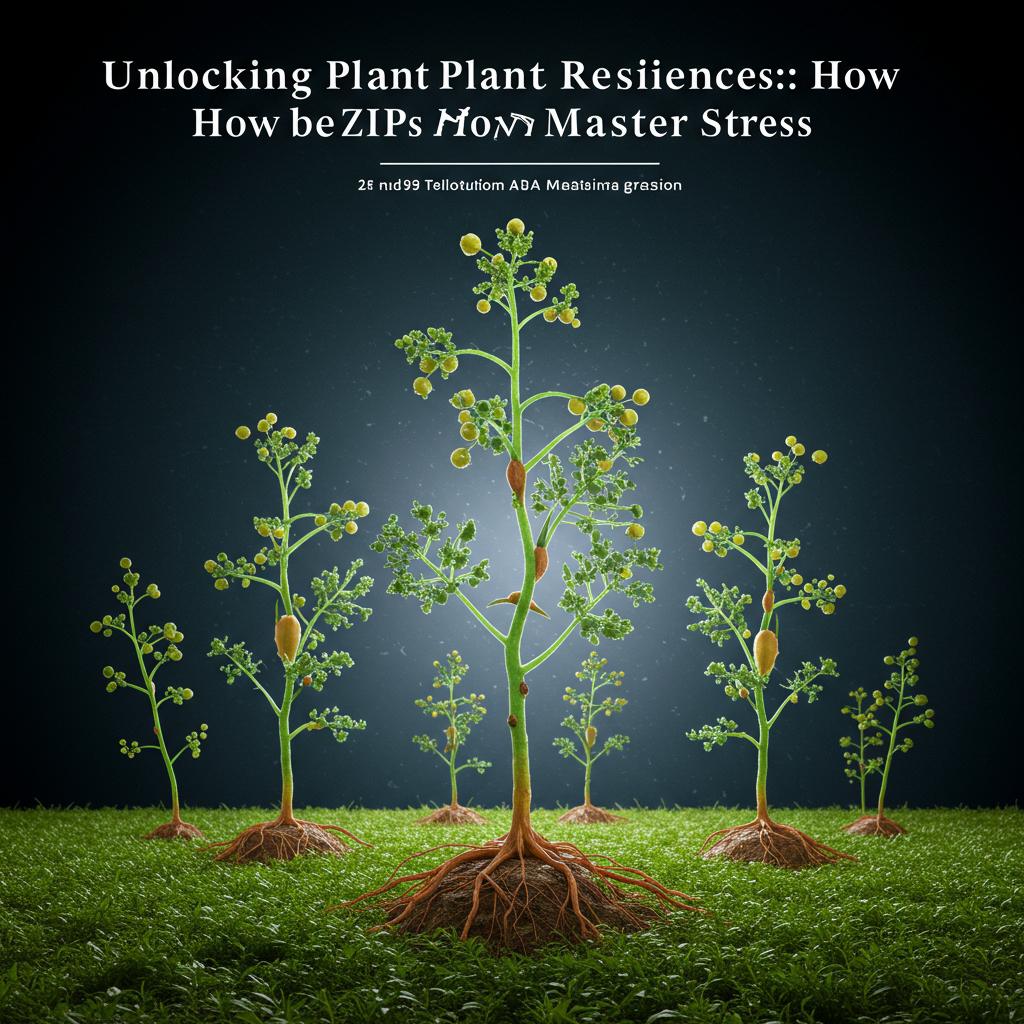
Plants, like all living things, face challenges. Imagine trying to grow in scorching heat, freezing cold, or salty soil – that’s what plants go through regularly. These environmental pressures are called abiotic stresses, and they significantly impact a plant’s ability to survive and thrive, ultimately affecting crop yields worldwide. Understanding how plants cope with these stresses is crucial, especially as we face increasing environmental changes.
Plants have evolved complex internal systems to deal with these difficult situations. Think of it like a chain reaction happening inside the plant. First, the plant perceives the stress, like sensing dry soil. Then, this information is transmitted within the plant through a network of signals – imagine tiny messengers rushing around to spread the word. Finally, specific genes are activated that tell the plant how to respond. This might mean growing deeper roots to search for water or producing proteins that protect against cold.
One of the key players in this intricate response system is a group of proteins called bZIP transcription factors. These proteins act like master switches, controlling which genes are turned on and off in response to stress. They bind to specific DNA sequences, called cis-elements, near the stress-related genes, essentially flipping the switch to activate them.
So, how do these bZIP proteins help plants cope with different types of stress? Let’s break it down:
- Salinity: High salt levels in the soil can disrupt a plant’s water balance and interfere with essential nutrient uptake. bZIPs can activate genes that help plants manage salt levels and protect their cells from damage. This might involve producing proteins that transport salt out of cells or molecules that help retain water.
- Drought: When water is scarce, plants need to conserve what they have and find new sources. bZIPs can trigger the expression of genes that help plants reduce water loss through their leaves and promote root growth to access deeper water sources. They can also activate genes that help plants tolerate dehydration.
- Cold: Freezing temperatures can damage plant cells and disrupt essential processes. bZIPs can activate genes that produce proteins that protect cells from freezing or help repair damage caused by cold. This might involve producing “antifreeze” proteins or molecules that stabilize cell membranes.
Recent research has significantly advanced our understanding of these bZIP proteins and their roles in stress responses. Scientists are studying how the structure of these proteins relates to their function, how they interact with other molecules in the plant, and how they control the expression of specific stress-related genes. By exploring the diverse mechanisms of bZIP action in different plant species, we can gain a deeper appreciation for the complexity of plant stress responses.
This knowledge is incredibly valuable for improving crop resilience. By understanding how bZIPs work, we can potentially develop strategies to enhance the stress tolerance of crops, leading to increased yields and greater food security, especially in regions facing challenging environmental conditions. This could involve genetic engineering to modify bZIP activity or breeding programs that select for plants with naturally enhanced stress tolerance. The ongoing research into bZIPs holds great promise for the future of agriculture and sustainable food production.
